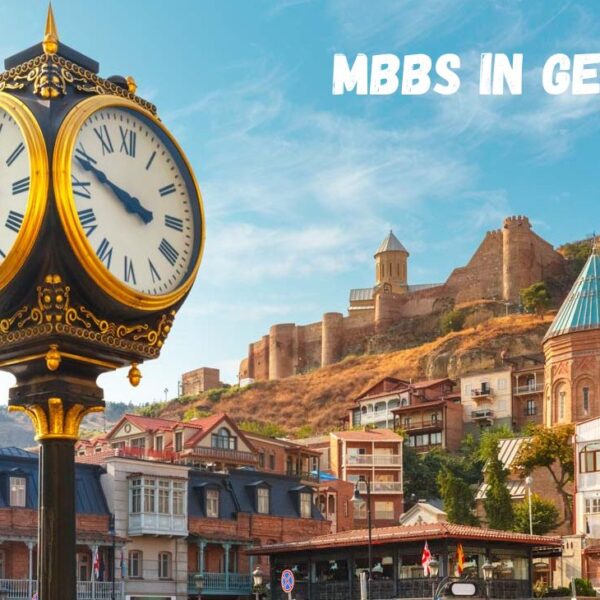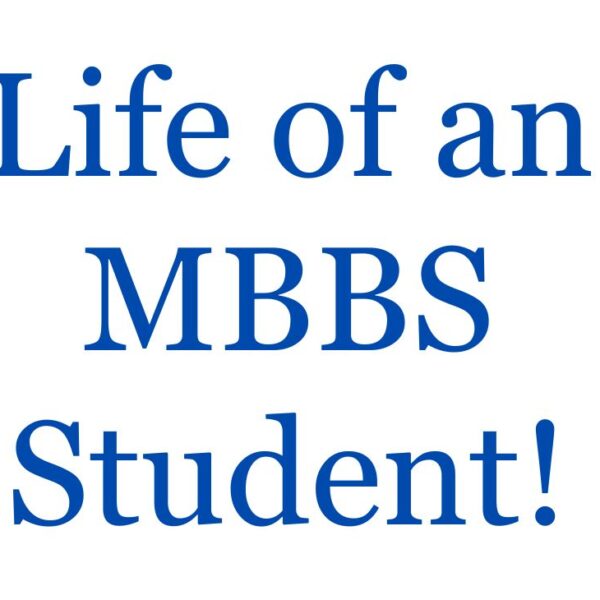
MBBS in Nepal for Indian Students
MBBS courses in Nepal offer a multitude of opportunities for medical students worldwide. Many Indian students prefer studying MBBS in Nepal due to the convenience and simple admission procedures, further enhanced by the amicable relationship between the two nations. Nepal has a robust education system and provides a welcoming environment for both national and international students.
Top medical universities in Nepal offer well-structured syllabi that cover the entire curriculum of MBBS courses. If you aspire to earn an MBBS degree from a recognized university, Nepal can be a favorable destination.
The duration of MBBS courses in Nepal is 5 years and 6 months. The initial four years focus on theoretical and clinical training, followed by internship programs. Notably, the cost of medical education in Nepal is affordable.
To be eligible for MBBS courses in Nepal, students are required to score a minimum of 50% in the 10+2 examination. They must also clear the National Eligibility cum Entrance Test (NEET) for medical procedures in Nepal.
The top colleges in Nepal are approved by the Nepal Medical Council (NMC), the United Nations Educational, Scientific and Cultural Organization (UNESCO), and the World Health Organization (WHO). The professors in these colleges are highly qualified with years of experience, providing in-depth knowledge to students.
Completing MBBS courses in Nepal is not a difficult task, as the universities mainly use English and Nepali as the mediums of instruction. This ensures ease of understanding and communication for international students.
MBBS in Nepal: Reasons to Study
MBBS education in Nepal follows a similar pattern to the MBBS course in India, making it familiar and relatable for Indian students.
Nepal claims some of the finest medical educational facilities in the region. Renowned medical colleges in Nepal include Nobel Medical College, KIST Medical College, and Lumbini Medical College.
- Nepalese medical universities are recognized for their reliability, security, and rankings.
- They offer students excellent quality theoretical and practical knowledge through their well-structured curriculum.
- One major advantage of pursuing MBBS in Nepal is the lower cost compared to other countries.
- The MBBS fees in Nepal are economical in comparison to universities in other foreign countries, making it an affordable option for students seeking quality medical education.
- Moreover, the universities in Nepal provide well-equipped hostel facilities, ensuring a comfortable living environment for students.
- These facilities contribute to a conducive learning atmosphere and a holistic educational experience.
- Overall, MBBS education in Nepal offers Indian students a familiar and affordable option, with reputable medical colleges, reliable education systems, and a conducive learning environment.
Duration of MBBS in Nepal
- MBBS course duration is 5 years and 6 months.
- First 4 years of theoretical and clinical training.
- After the 4-years of study, the internship process is going to start.
MBBS in Nepal: Eligibility Criteria
- The age limit of the candidates must not be under 17 years. Candidates above the age limit of 17 years are only eligible to get MBBS admission in Nepal.
- Candidates who complete class 12 with main subjects such as Physics, Chemistry, and Biology. The students must have cleared the class 12/intermediate with at least 50% of marks in all subjects.
- Nepal medical universities may conduct the entrance exam for intake. The rules of each university differ.
MBBS in Nepal
- MBBS admissions in Nepal will be conducted for the September intake.
- The admission process is going to kick start before 60 days of the course starts.
- Applicants can send online applications to their interested universities to avail of MBBS admission in Nepal.
- While filling up the application form fill it carefully without any mistakes.
- Upload required copies of documents along with the application form.
- The college/university will send the approval for eligible candidates who meet the eligibility criteria.
Nepal Medical Universities: Recognition/Approval
Medical colleges in Nepal are approved by the prestigious organizations like,
- World Health Organization (WHO)
- United Nations Educational, Scientific and Cultural Organization (UNESCO)
- National Medical Commission (NMC)
MBBS in Nepal: List of Documents Required
- Class 10th and 10+2/Intermediate mark sheets of the medical candidate.
- School leaving certificate.
- Certificate of conduct.
- Any valid identity proof such as an Aadhar card, voter ID, PAN card, or any other valid ID proof.
- Birth certificate of the medical candidate.
- Medical fit certificate.
- The NEET scorecard is mandatory, students are required to present it at the time of admission.
- Students must produce all needed documents at the time of admission.
- Valid Indian Passport for Indian students.
- No need for a Visa for Indian students.
MBBS in Nepal: Admission Procedure
The admission criteria and procedures for MBBS programs vary among universities in Nepal. While the process is generally easy and transparent, there are noticeable differences.
Certain universities do not require an entrance examination for MBBS admission, allowing students to directly enroll in top institutions in Nepal. On the other hand, some universities do conduct entrance exams, and students must successfully pass these exams to secure admission.
Nepal MBBS: Important Dates for Admission
Aspirants seeking MBBS admission in Nepal can stay updated with the admission dates from the university’s official websites. The application process for MBBS admission typically starts in June and July.
After submitting their applications, it takes approximately 15 days for the university to process and issue the admission letters, which usually occurs in July or August.
Following that, it takes the Ministry around 2 to 3 months to issue the student visa, typically in August or September. The academic year for MBBS programs generally begins in September or October.
Education Methodology Implemented by Nepal Medical Universities
Nepal is home to over 50 universities and colleges that offer medical education, including both undergraduate and postgraduate courses. The majority of these institutions use English as the primary medium of teaching.
However, some medical universities in Nepal use Nepali as the medium of instruction, while a few others use both English and Nepali. The syllabus followed in Nepalese medical colleges is designed to meet global standards.
International students are warmly invited to these institutions. Moreover, practical knowledge is given significant importance in every medical college, ensuring a well-rounded education for students.
Benefits of MBBS in Nepal
- Nepal offers various medical fields of study, including General Medicine, Dentistry, Surgery, Pediatrics, and more.
- Medical students are not required to clear any entrance tests such as TOEFL/IELTS for MBBS admission in Nepal.
- Indian students will have no trouble communicating with the locals, as many of them can speak and understand Hindi.
- Nepal has adopted a no-visa policy for Indian students, making the documentation process easy and hassle-free.
- The government has implemented specific security policies to ensure the safety of international students.
- For Indian students, traveling to Nepal is relatively convenient as it is a neighboring country.
- The admission process followed by medical universities in Nepal is simple and easy.
- The religious and cultural similarities between Nepal and India create a familiar environment for Indian students.
- The National Medical Commission reserves 1000 medical seats in Nepal annually for Indian aspirants.
NMC Approved Medical Universities in Nepal
| University Name | Country Ranking | World Ranking |
| Kathmandu Medical Colleges, Kathmandu | 3 | 3302 |
| Nepalese Army Institute of Health Sciences | 9 | 13213 |
| Manipal College of Medical Science, Pokhara | 12 | 13972 |
| Gandaki Medical College, Pokhara | 22 | 21548 |
| Nepal Medical College, Kathmandu | 10 | 13461 |
| Janaki Medical College, Janakpur | 13 | 11278 |
| Nepalgunj Medical College, Nepalgunj | 17 | 18140 |
| Institute of Medicine (IOM) in Maharajgunj | 15 | 5639 |
| Lumbini Medical College Palpa | 20 | 20764 |
| Kathmandu University School of Medical Sciences | 30 | 20161 |
| College of Medical Science, Bhartpur | 18 | 19474 |
| National Medical College, Birgunj | 23 | 21996 |
| KIST Medical College Patan | 25 | 22450 |
| Chitwan Medical College, Bharatpur | 29 | 21329 |
| Nobel Medical College, Biratnagar | 35 | 24963 |
MBBS Nepal Application Process
- Apply for MBBS on the University Portal.
- Attach the scanned copies of the required documents along with the application.
- If the applicant meets the eligibility of the university, then the concerned university officials release the invitation letter within 48 hours.
- Pay registration fees after the confirmation of admission.
- Apply for the Visa.
- Complete the Visa, accommodation, and other arrangements.
- Report to the college for the classes.
MBBS Nepal Syllabus
| Year | Semesters | Subjects Covered |
| 1st | 1ST – 2nd Sem. | Clinical exposure, Integrated Basic Medical Science, Communication Skills, Community Medicine |
| 2nd | 3rd -4th Sem. | Integrated Basic Medical Science Clinical Exposure & Communication Skills |
| 3rd | 5th – 6th Sem. | Surgery, Obstetrics and Paediatrics, Gynaecology, Internal Medicine, Disciplines of Forensic Medicine, Community Medicine (Applied Epidemiology, Family Health Exercise) |
| 4th | 7th -8th Sem. | Clinical Subjects |
Nepal MBBS Fee
The fee structure of each college is different in Nepal. The fee structure of various colleges in Nepal has been listed in the following table. Make a note that it is the approximate estimation. Students can directly approach the concerned university to know the actual fee structure.
| Name of the University | Recognition | Tuition Fees For 5 Years |
| National Medical College | Tribhuvan University | 60 to 65 Lakh |
| Nepal Ganj Medical College | Kathmandu University | 55 to 60 Lakh |
| Chitwan Medical College | Tribhuvan University | 50 to 60 Lakh |
| KIST Medical College | Tribhuvan University | 45 to 55 Lakh |
| Devdaha Medical College | Kathmandu University | 50 to 55 Lakh |
| Borat Medical College & Teaching Hospital | Kathmandu University | 50 to 60 Lakh |
| Manipal College of Medical Sciences | Kathmandu University | 55 to 65 Lakh |
| Institute of Medicine | Tribhuvan University | 40 to 50 Lakh |
| Lumbini Medical College & Research Center | Kathmandu University | 50 to 60 Lakh |
| Kathmandu University School of Medical Sciences | Kathmandu University | 45 to 55 Lakh |
| Kathmandu Medical College | Kathmandu University | 50 to 60 Lakh |
| Nobel Medical College | Kathmandu University | 50 to 60 Lakh |
| Gandaki Medical College | Tribhuvan University | 50 to 60 Lakh |
| B.P. Koirala Institute of Health Sciences | – | 40 to 50 Lakh |
| Janaki Medical College | Tribhuvan University | 45 to 55 Lakh |
| Nepal Medical College & Teaching Hospital | Kathmandu University | 50 to 60 Lakh |
| Universal College of Medical Sciences | Tribhuvan University | 55 to 65 Lakh |
| Kathmandu National Medical College | Kathmandu University | 45 to 55 Lakh |
MBBS in Nepal – Overview
Candidates who are disqualified in the NEET exam can opt to study MBBS in Nepal. Choosing to study MBBS in Nepal can be cost-effective, making it a favorable choice for many. Medical aspirants should select a reliable education consultancy that offers top-class services and amenities.
The medical universities in Nepal provide education in English, presenting a great opportunity for Indian students to comprehend the concepts more easily. However, students must remain cautious of fraudulent agents who may deceive them financially and provide inaccurate information.
Steps to Choose the Best MBBS University in Nepal
- Medical students should carefully choose a suitable university for their studies. It is advisable to consult the list of medical universities approved by the Nepal Medical Council (NMC).
- Also, it is important to gather information regarding the medium of instruction used in the selected university.
- Before traveling to Nepal, it is essential to gather all the necessary information about the chosen university for pursuing an MBBS degree.
- It is crucial to ensure that all required documents are collected in advance.
- If any queries arise, it is best to directly contact the university instead of relying on information available from sources.
- Adequate preparation for both the NEET and NMC screening exams is recommended.
- Lastly, it is advisable to keep the passport and identity proof readily accessible at all times.





